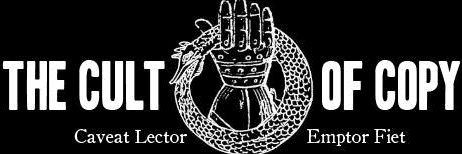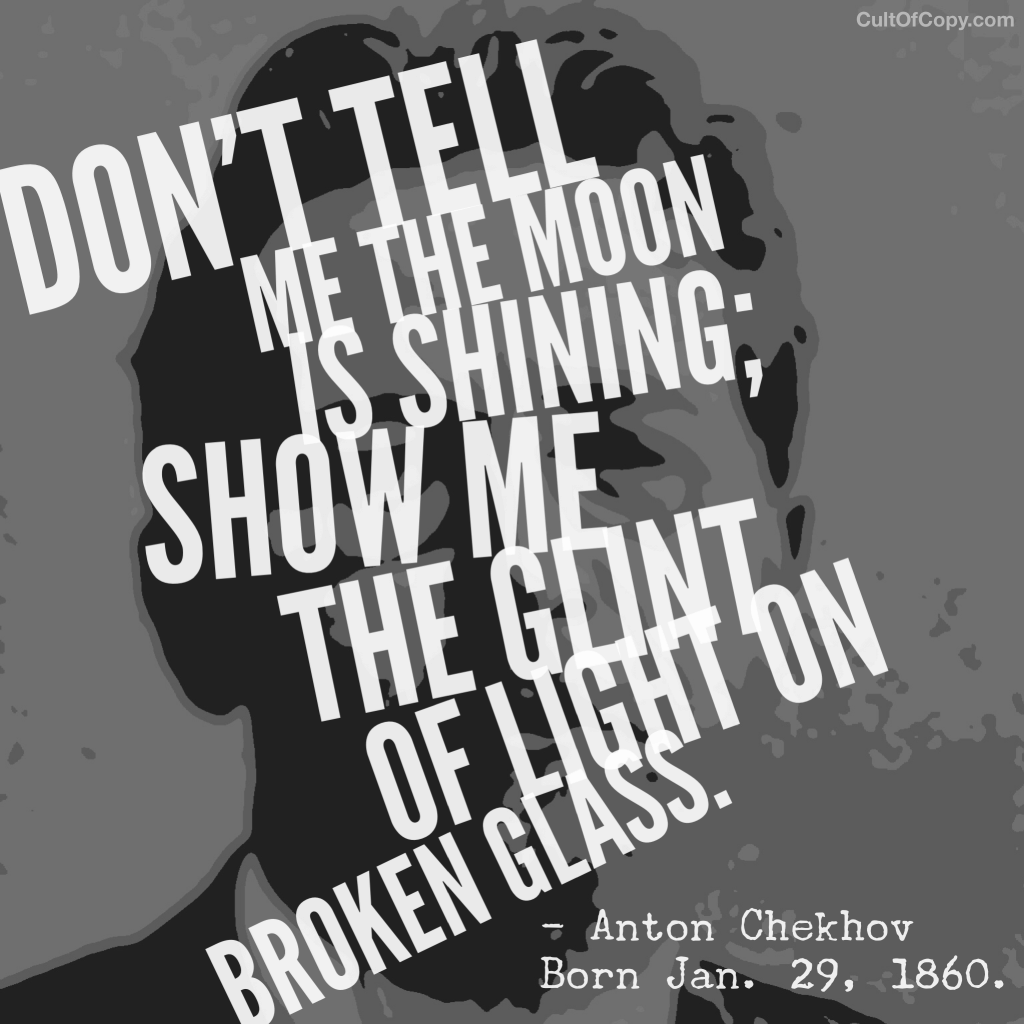“Don't tell me the moon is shining; show me the glint of light on broken glass.” – Anton Chekhov, Born Jan. 29, 1860.
Show, don't tell. It's an old adage among screenwriters, who incidentally love Chekhov.
So, it behooves us to remember that demonstration is the highest possible form of proving the effectiveness of a product.
But obviously in a written form, we cannot perform a physical demonstration. So it becomes a matter of descriptive power.
And getting good at description that has impact and resonance is what Chekhov teases here. Even a simple detail like “moonlight” is established via the setting where the “scene” occurs.
Most copy wonks know that famous old ad about “they laughed when I sat at the piano until they heard me play…”
That's an ideal example of the lesson embedded here. “Learn to play piano” is boring. The presentation above makes it part of a STORY.
A story has characters, setting, conflict, and resolution. Moonlight isn't just there. It's shining on broken glass. What object did these shards once belong to? Who broke it? Why?
That's a proposition that creates interest. It raises questions in the reader's mind that they desire answers for.
And if you can work even a meaningless detail like moonlight into this kind of hook, where the audience is hungry for more, your goal of pulling and pushing them into a purchase is that much more likely.

